Pet Desexing
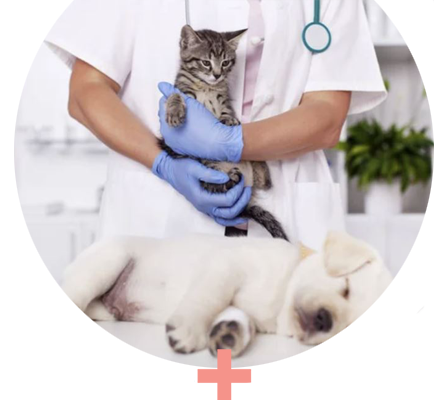
Soon after welcoming a new kitten or puppy into your family, you’ll need to consider whether to have them desexed. While it may feel confronting at first, desexing is something we recommend at Plus One Vet. Animal desexing provides numerous benefits from preventing unwanted pet pregnancies to reducing the risk of cancer and other diseases.
We understand each animal is different, and there are pros and cons to pet desexing you will want to weigh up. We’re very happy to guide you through the desexing process and answer any questions you have.
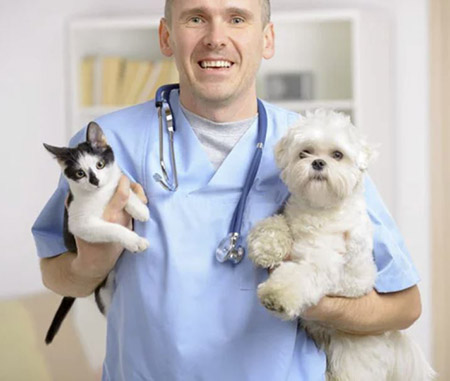
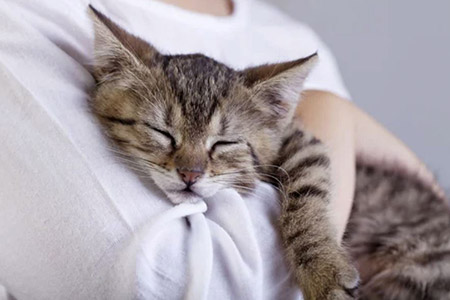
Why desex your pet?
For most pet owners, preventing unwanted pregnancies is the main reason they choose to desex their cat or dog. Welcoming a new pet into your family is exciting, but litter after litter of puppies or kittens may not be what you have in mind.
Desexing your pet helps to prevent cat or dog overpopulation in your home, and also in the wider community, where many animal shelters are already overrun.
SunnyBank
07 3707 5432
Desexing dogs – Understanding what is best for my dog
Desexing, also known as spaying, castrating, neutering or sterilising, involves surgically removing part of your dog’s reproductive system.
By desexing, behavioural issues including aggression, dominance, hyperactivity, destructive behaviour and running away will also be less prevalent.
Desexing female pets will mean they won’t have a reproductive cycle, causing them to be ‘on heat’, creating unpleasant behaviour and messy discharge.
Desexing male dogs
When a male dog is desexed, both testicles are removed during a procedure called orchidectomy.
It is a quick, minimally invasive procedure, where a small nick is made in the skin in front of the scrotum. The teste is squeezed through a small hole and removed. The scrotum will remain after the procedure as it doesn’t require removal for the castration process.
What are the health benefits of desexing a male dog?
For male dogs, desexing:
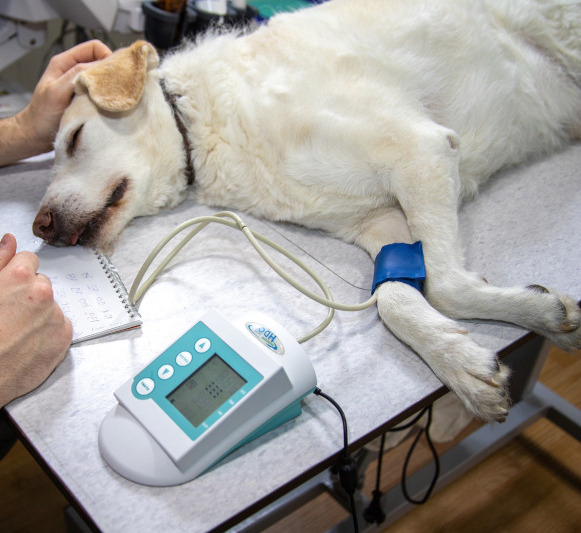
Reduces the risk of prostatic diseases
Reduces the risk of perianal tumours
Prevents testicular cancer
Desexing female dogs
Desexing a female dog involves removing the ovaries and uterus, or sometimes only the ovaries in a procedure called an ovariohysterectomy through an incision in the abdomen.
What are the health benefits of desexing a female dog?
For female dogs, desexing:
Reduces the risk of mammary tumours
Prevents tumours in the ovaries, uterus and cervix
Prevents pyometra (infection of the uterus)
What is the recommended age of desexing a dog?
This will come down to your dog’s breed. Smaller dogs up to 19kgs can be desexed at around 6 months of age, while we typically wait for larger dogs up to 39kgs to achieve their full bone growth before desexing.
We recommend larger dogs, including Rottweilers, Border Collies and German Shepherds wait until they turn one before desexing, while dogs bigger than 40kgs like a male Bernese Mountain dogs can be as old as 2.
Each dog is individual, therefore during our consultation we ensure we understand your dog, what you are looking for as an owner and developing a plan that all parties are happy with.
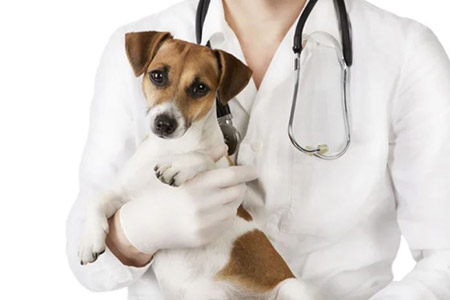
What does dog desexing cost?
The cost of desexing will depend on your dog’s size and breed, and also their sex, as the procedure is more involved for a female. We recommend making an appointment so we can provide you with the best approach for you and your pet’s needs.
Cat Desexing
Desexing cats involves a very similar process to dogs.
For males, desexing (also known as castration or neutering) involves removing both testicles. For female cats, desexing, or spaying, means removing the ovaries and uterus, or sometimes only the ovaries.
What does cat desexing cost?
The cost of desexing a cat will depend on its size and overall health. It’s best to make an appointment with us to discuss the best approach for your pet.

What does the desexing process involve?
Ahead of your pet’s desexing surgery, we will advise you on how to prepare your pet, what to expect during the surgery and how to care for your pet afterwards.
Fasting
Your pet will be required to fast ahead of the surgery.
Admitting
We will admit your pet on the day and ensure we are available for any questions you have.
Health Check
Your pet will receive a health check, including an anaesthetic blood test to ensure kidney, liver and red blood cells are healthy.
General Anaesthetic
We will provide your pet with a sedative and pain relief to help them relax, followed by a general anaesthetic.
Surgery
The surgery will be performed.
Recovery
Your pet will be monitored closely during the recovery process and provided with pain relief medication as they wake from the anaesthetic.
Home time
In most cases your pet will be able to return home later in the day, with after-care information and an Elizabethan collar, to ensure they don’t lick the surgery site.
Follow-up call
We will follow up with you the day after you return home to ensure your pet’s recovery is going smoothly.
Appointment
We will then need to see you and your pet back in our vet clinic 10 to 12 days after the operation.
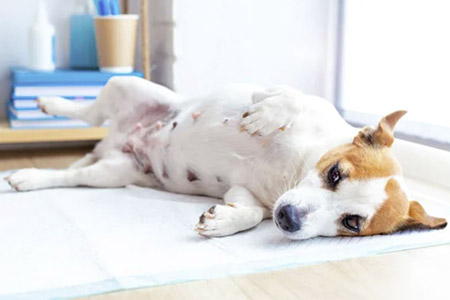
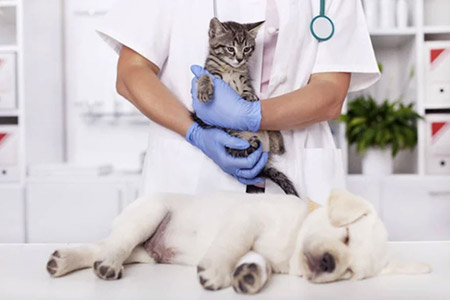
We understand that this can be an anxious time for you and your pet. We will ensure to keep you updated throughout the whole time your beloved pet is in our care. We treat your pet as one of our family, so you can rest assured they are in the best care.
SunnyBank
07 3707 5432
Are there any risks involved with desexing?
As with any procedure involving anaesthesia and surgery, there are risks. We will go through this in more detail with you during your first appointment, ensuring that you feel comfortable with the whole process and knowing your pet is in the best care possible.
Desexing can also cause slower metabolism in your pet, which may need to be managed so it doesn’t lead to weight gain.
If you have a female dog, we will also wait until after their first reproductive cycle before desexing, as there is some evidence desexing a female too early can lead to incontinence later in life.
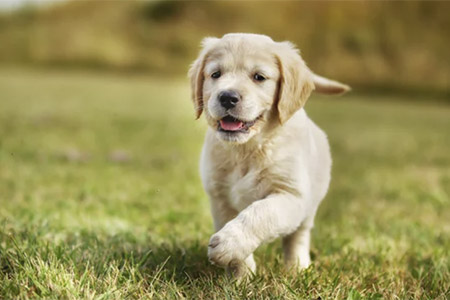
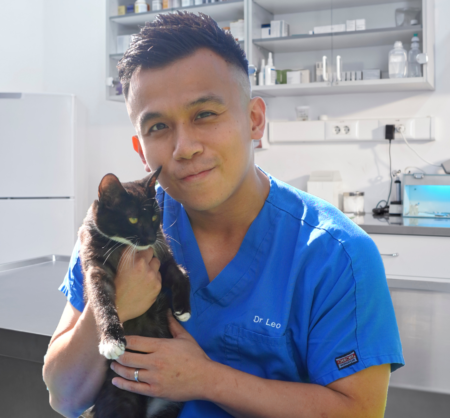
We look forward to caring for your pet
Here at Plus One Vet, we are highly experienced in pet desexing, we take pride to answer any questions, support you through the process and ultimately take care of your loved pet.
Dr Leo Wong and his team service the Sunnybank, Sunnybank Hills, Calamvale and Algester areas in Brisbane. We look forward to meeting you and your pet, and advising you on how to best care for your cat or dog.
SunnyBank
07 3707 5432


